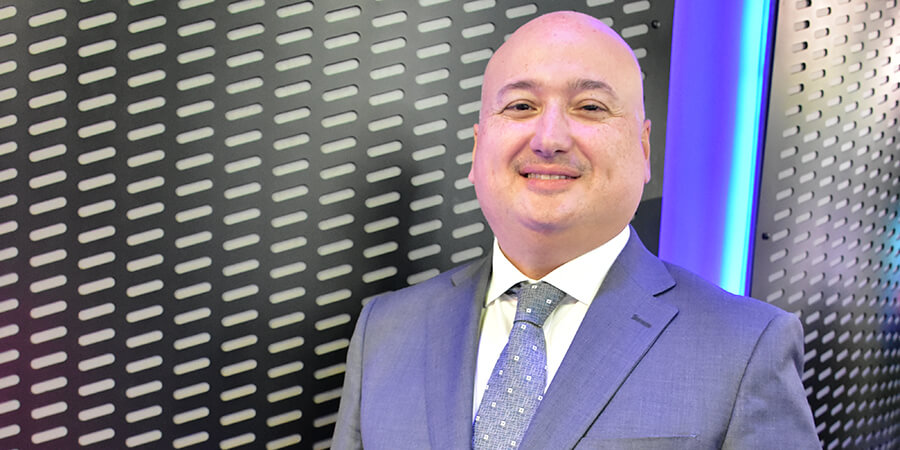In an exclusive interview, Fadi Pharaon, President, Ericsson Middle East and Africa, shares his company’s efforts in accelerating digitalization in Africa and the evolution of 5G in the region.
What can we expect from Ericsson’s participation in this year’s GITEX in terms of collaboration and partnerships?
We are super pleased at Ericsson to be back at GITEX this year. We’ve always participated in this event and this year we are focusing, in particular, on the next evolution of 5G technology. As you might have seen in third-party reports, the UAE has the fastest 5G networks around the globe. At the Ericsson booth, we are showcasing solutions that will be available once 5G standalone is launched. This connectivity will enable completely new applications, for example, immersive stadium experiences with fantastic download speeds that will allow users to view different camera angles of the live games. It will also enable stronger upload speed for content creators, broadcasters and all consumers who want to share updates with friends and families. All of this is based on the technology called network slicing which prioritizes dedicated capacity and performance to all types of consumer or enterprise usages.
Please tell us about Ericsson’s latest developments in supporting the acceleration of digital adoption within African countries.
We are very proud of our heritage and presence in Africa and we see an incredible push towards innovation. For instance, if you look at mobile financial services, we collaborate with multiple operators to increase productivity and support unbanked people to take part in the digital financial community. There is also a major move from 2G, and 3G into the 4G technologies across the entire continent. Certain countries like South Africa, Nigeria, Madagascar and others are launching 5G. There’s a big interest in 5G when it comes to home broadband and fixed wireless access (FWA). Considering the young population of Africa, the economy, and the digital visions of many of those countries; we believe a lot in the innovation and the passion of the continent, and we will continue to contribute there as much as we can.
As the demand for 5G technology continues to grow, how is Ericsson poised to create a digitally-advanced economy in the MEA region?
The foundation of digital innovation and connectivity starts with strong technology that has good coverage. In terms of 5G, I think we are all blessed to have the entire Gulf area with well-established 5G networks. A lot of the GCC countries were the first to launch the technology back in 2019. Today, everybody is ready to take the next steps in terms of the 5G Evolution to 5G standalone. In a few years, we will see a lot of new devices coming out for consumers that will enable augmented reality or virtual reality that will enable 5G connection to the edge of the network for wearing glasses and so on. At this stage, the low latency of 5G has opened up a lot of exploration in the industry space because there is real-time monitoring and various units such as automated guided vehicles (AGVs); and can have thousands of sensors around manufacturing plants for safeguarding human lives and safety, among others. There's a plethora of industrial use cases that are being explored in the region as we speak.
How is Ericsson harnessing emerging technologies such as generative AI and the blockchain, among others, to build resilient IT operations in MEA? Can you share some examples of such projects?
For us at Ericsson, it is important to embed the latest technologies for our operations. When it comes to blockchain, for instance, we use it for rolling out new sites to get acceptance from the operators to make sure that it is timely and in compliance with the quality. Blockchain helps us to manage that efficiently. We use artificial intelligence, for instance, for our radio sites to manage interference between the sites. We also use it to lower the energy consumption in the radios. In another instance, we use it to operate and manage the network whereby we introduce AI as well as machine learning to preempt what kind of challenges the operations team might face, so that they can take action before the real issues even arise. All of this is critical for operators to optimize the user experience for their customers.










